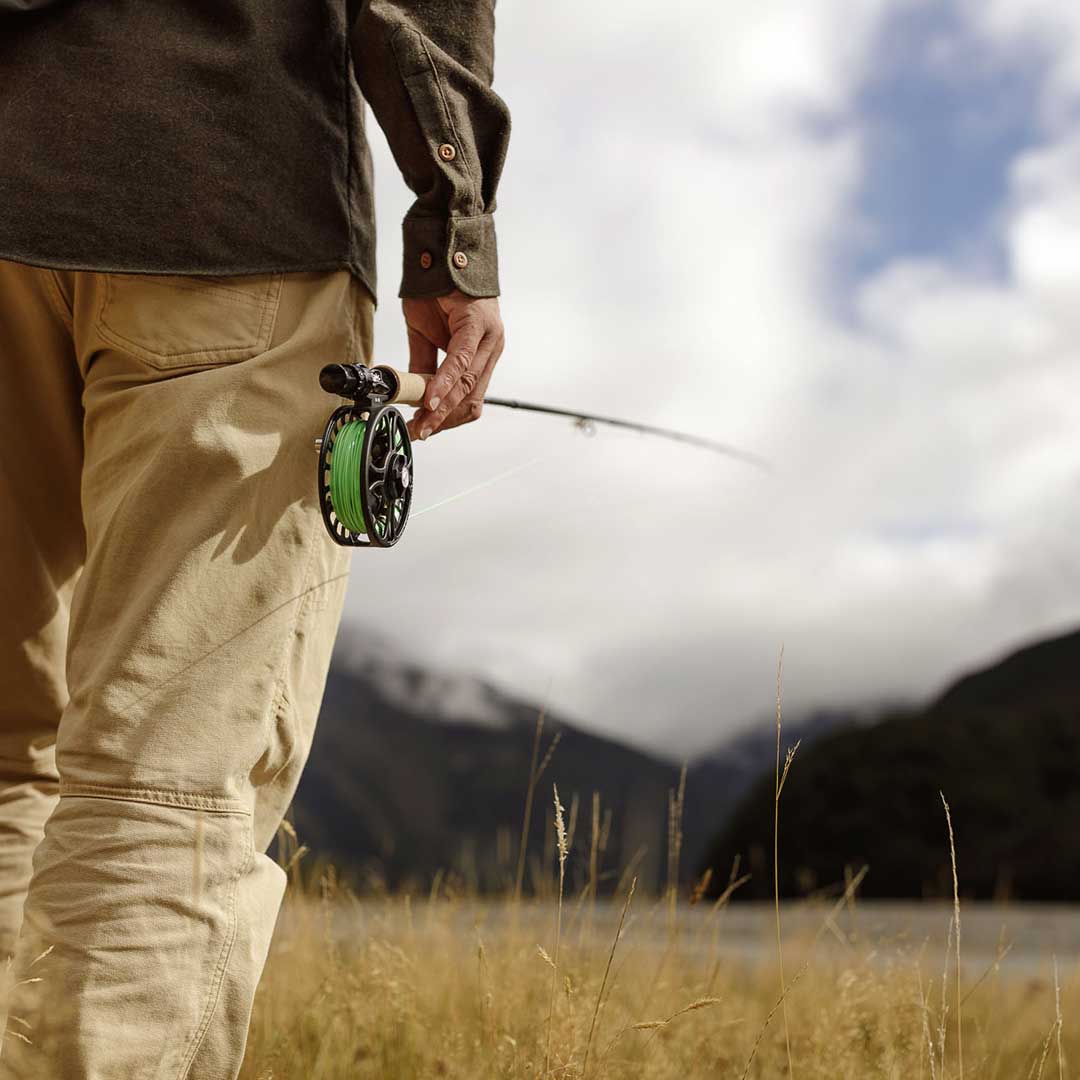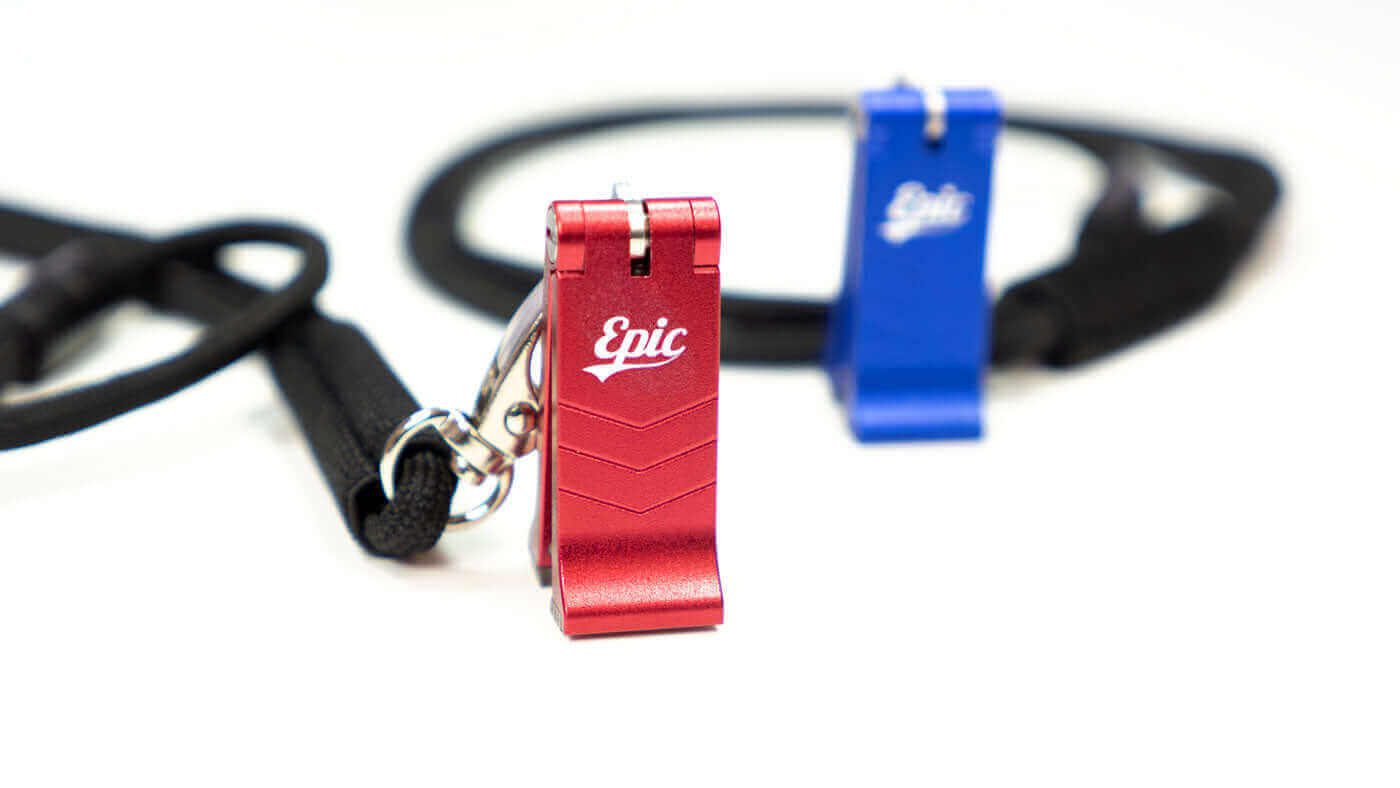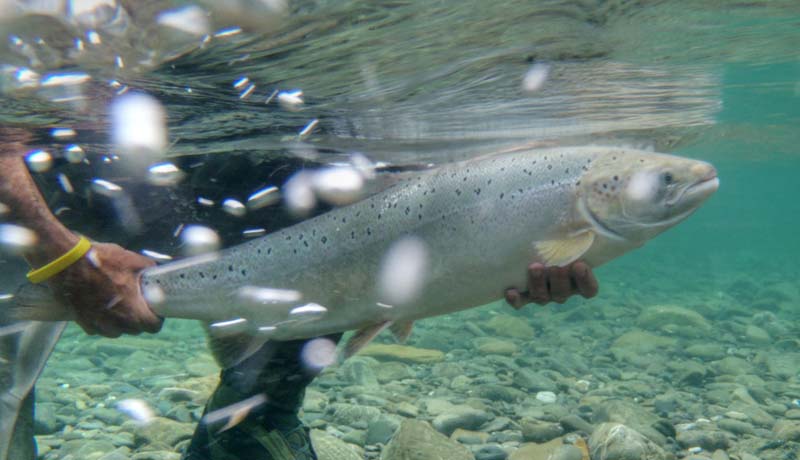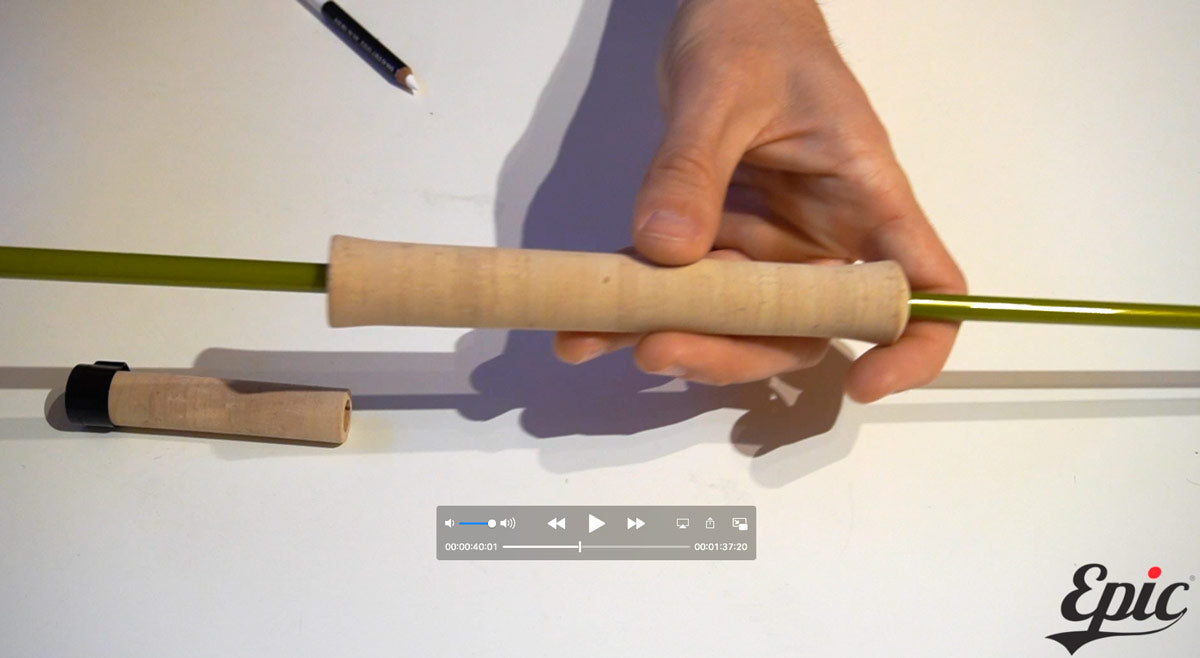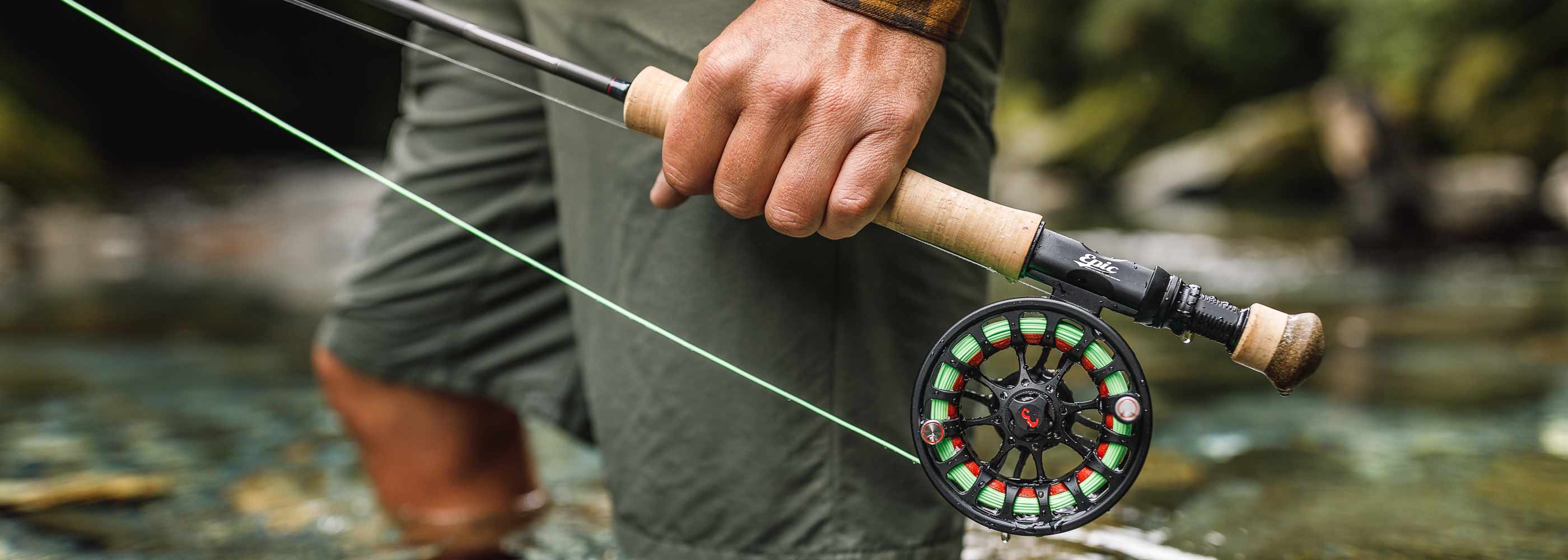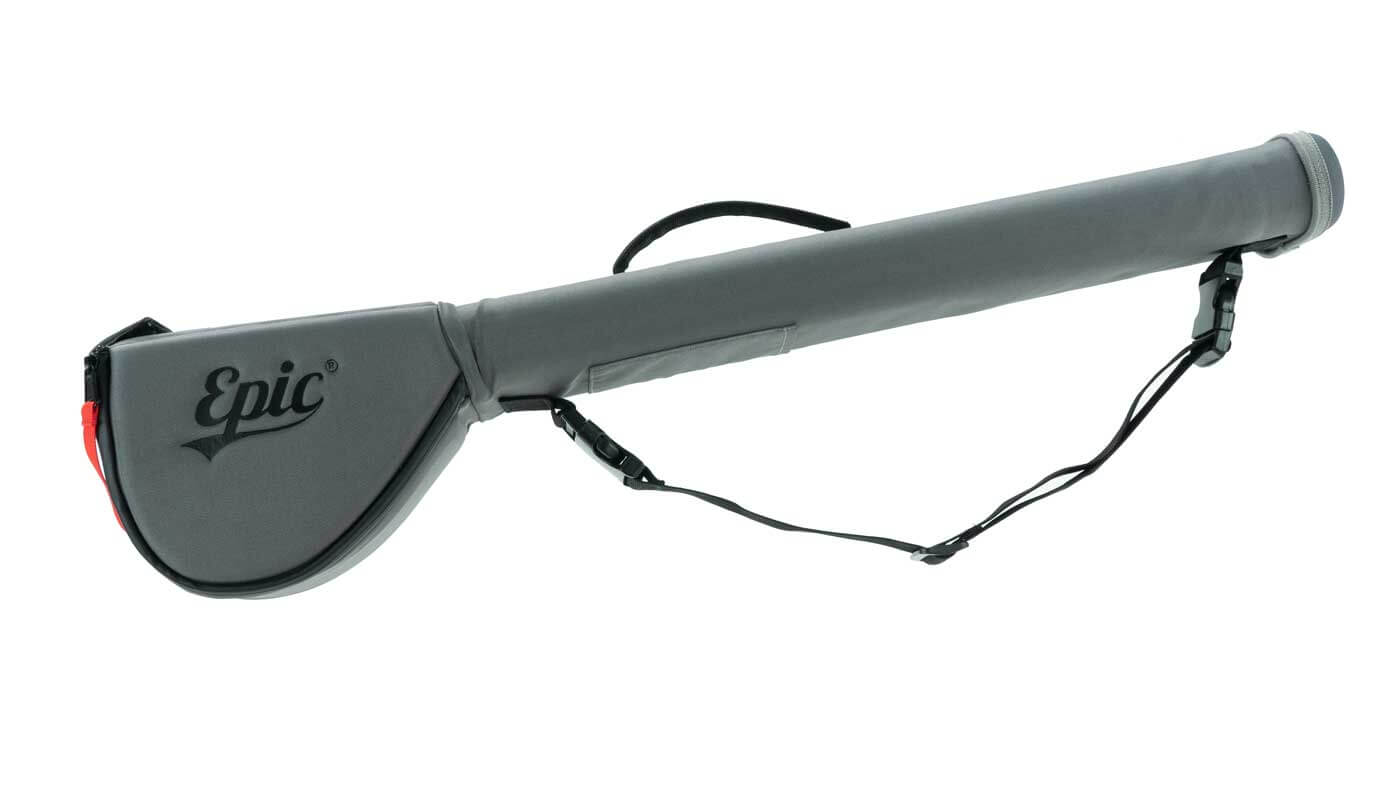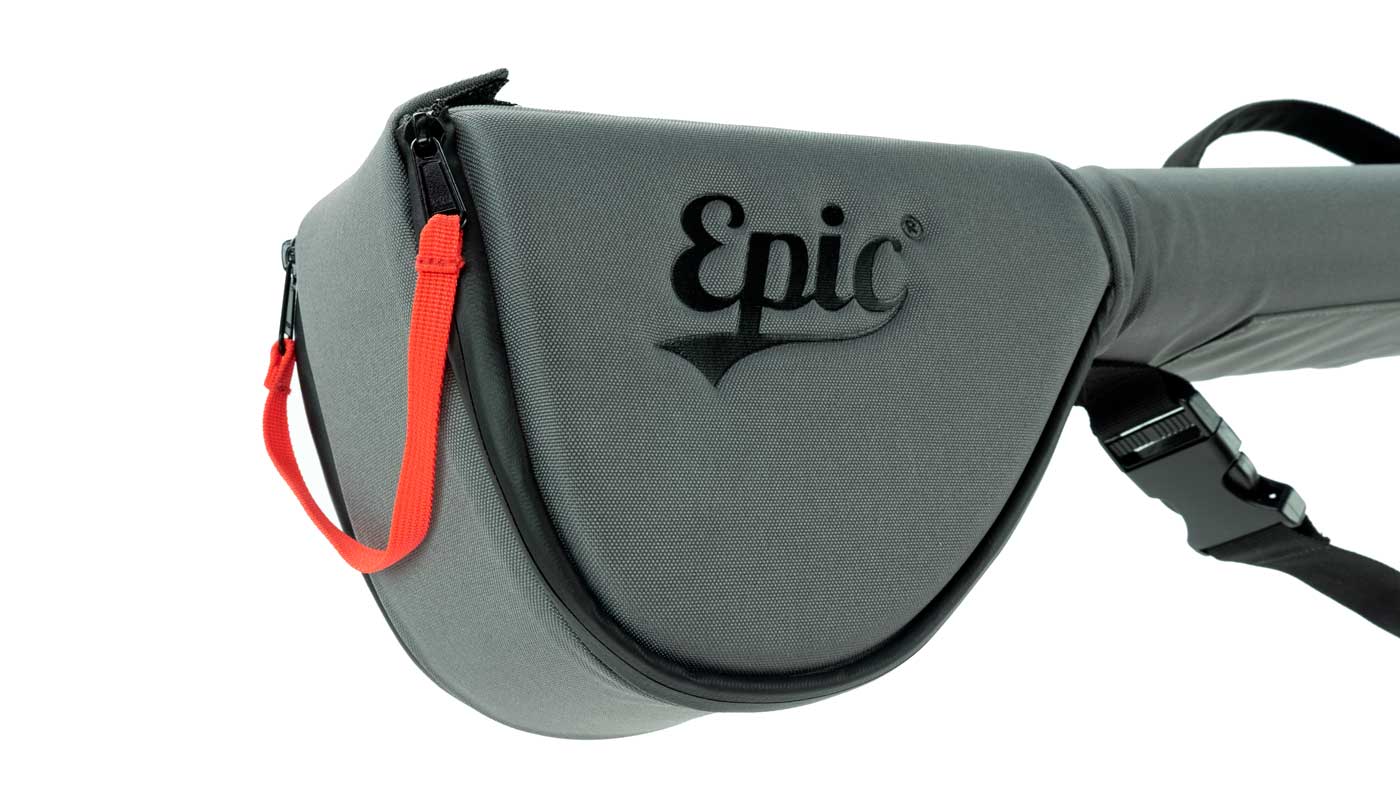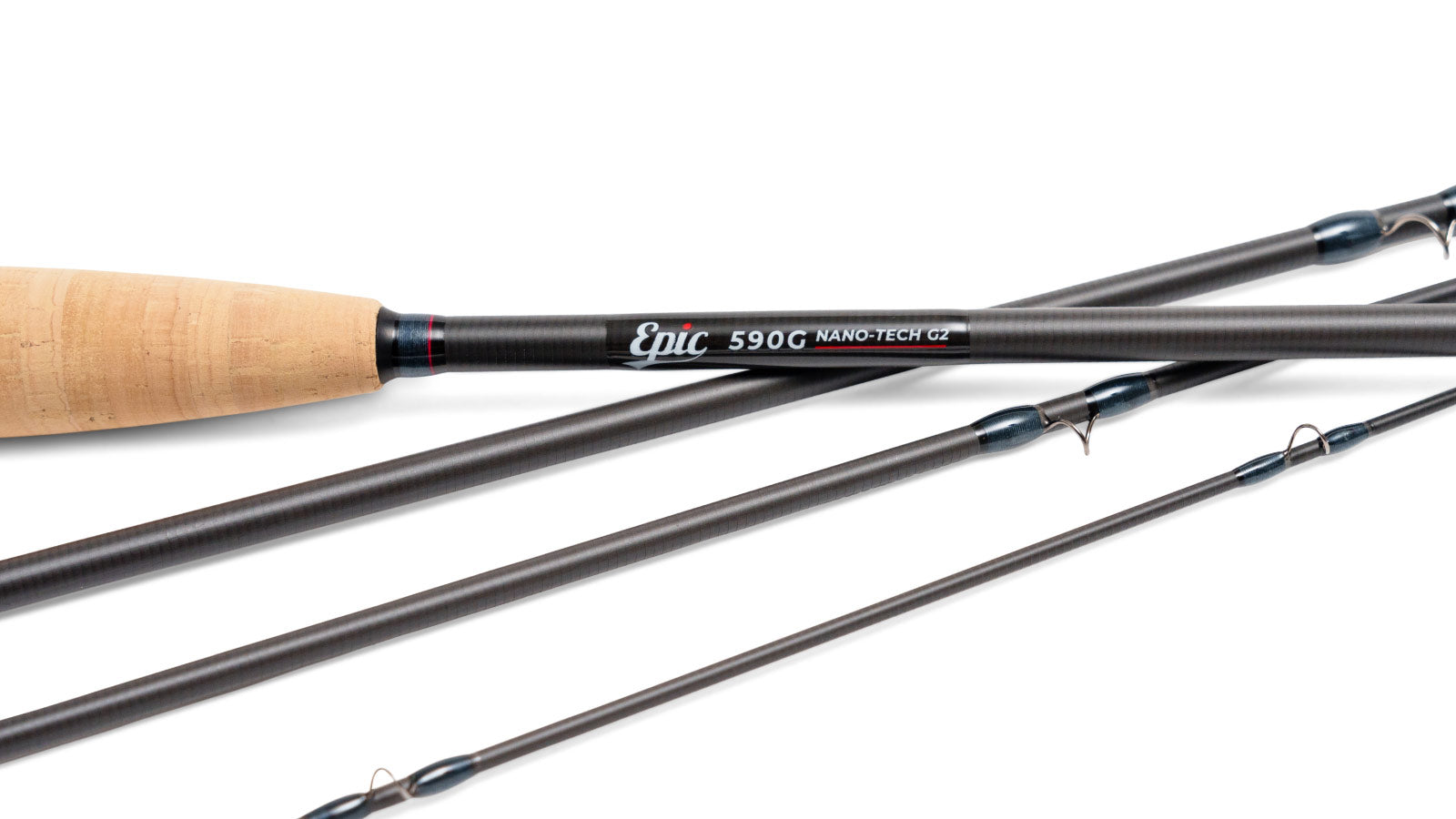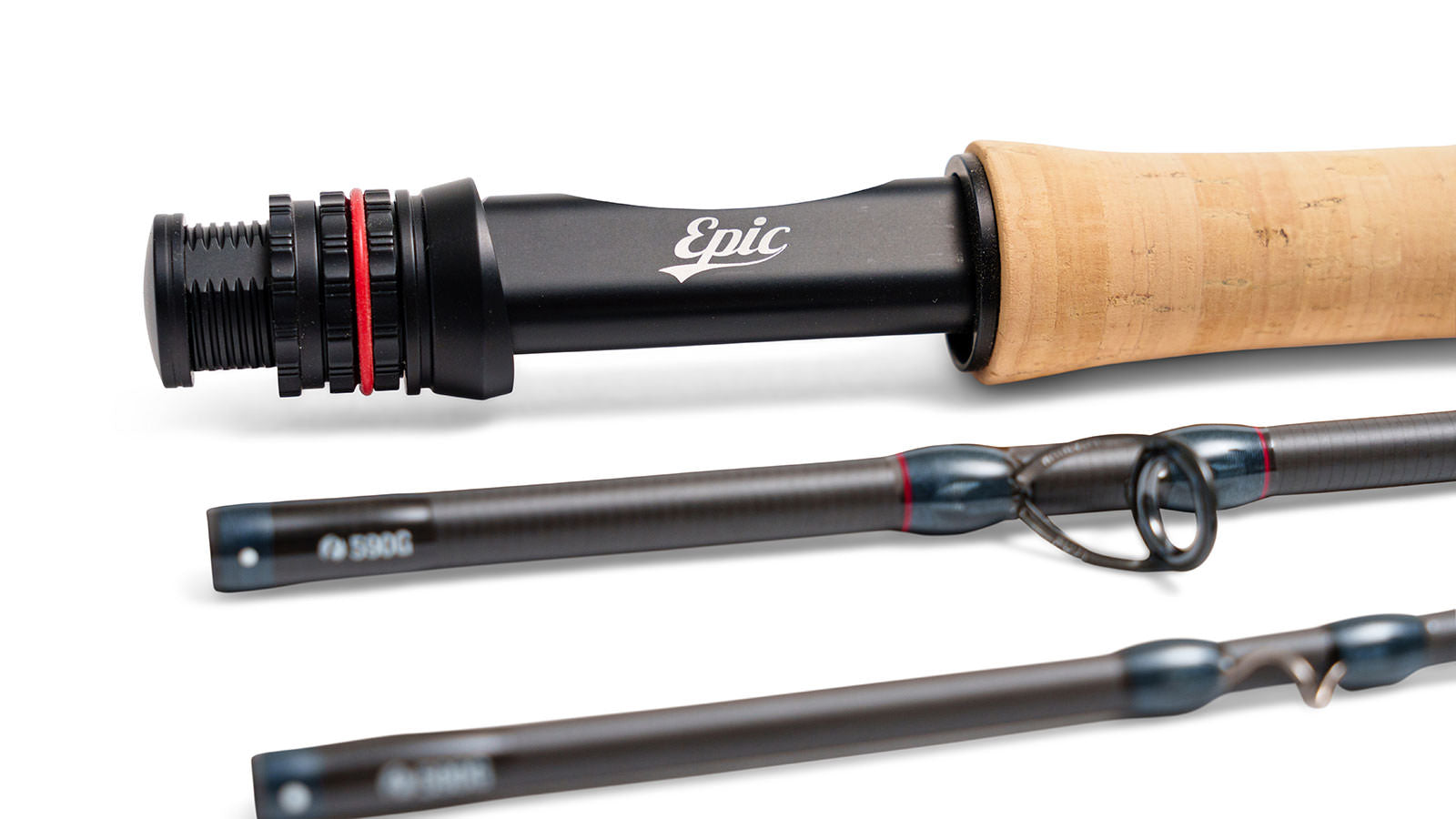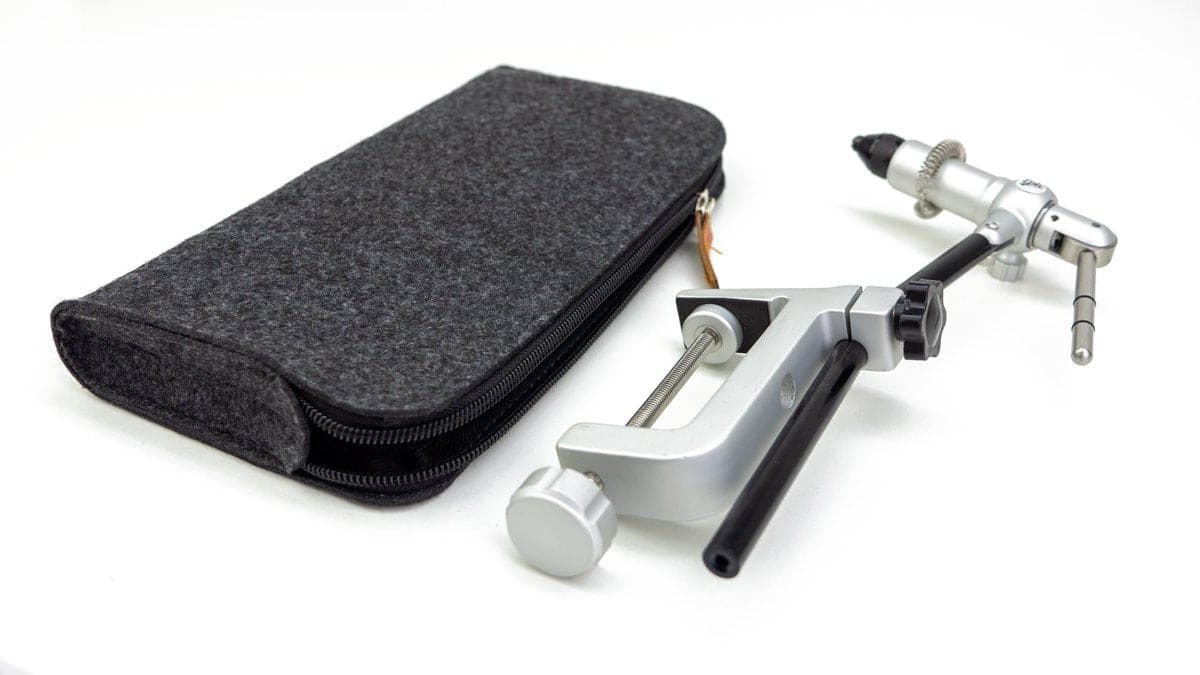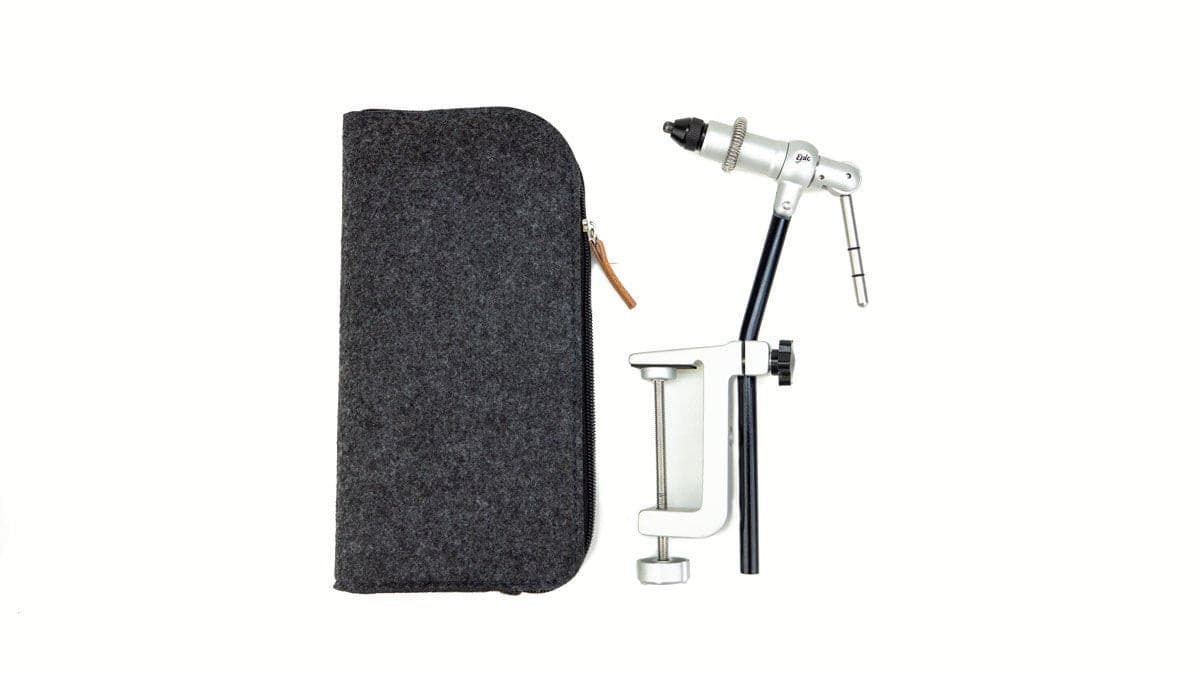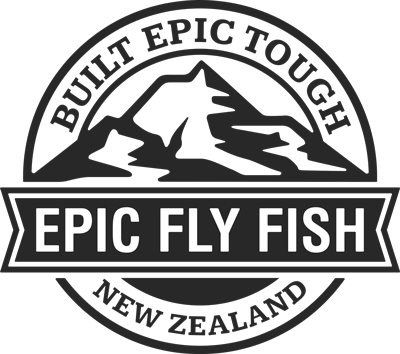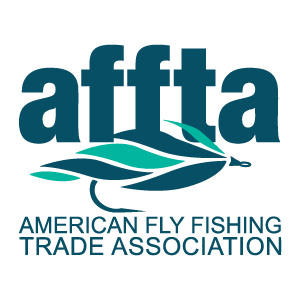
President George H. Bush and angler Claude Westfall with the last Presidential Salmon. Then Maine U.S. Senator Olympia Snowe (3rd from right) looks on – C.Z. Westfall photo
Last Call: Saving the Nation’s Atlantic Salmon from Extinction
By: Bob Mallard
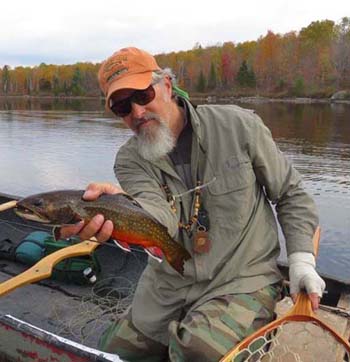
Bob Mallard is a man who comfortably wears many hats, has many interests, and qualifying talents. Here, Bob showing a native Maine pond brook trout before release.
Editor’s Note: This is my second article in our series on fly fishing conservation. This series appears with the support of Swift Fly Fishing, makers of Epic Fly Rods.
The following story first appeared in MIDCURRENT. With the author’s and MIDCURRENT’s permission we are pleased to reprint this must read feature story.
Will wild native Atlantic salmon go the way of the passenger pigeon, or will we be able to bring them back from the brink of extinction as we did the bald eagle, our National Bird, or bison, our National Mammal? As the lights dim on the “King of Fish,” we must ask ourselves, are we doing everything we can to prevent the loss of the nation’s iconic Atlantic salmon? The answer, sadly, is no….
Unless we can get everyone on the same page, wild native Atlantic salmon could become a footnote in the archives of Native American, early European settlement, and outdoor sporting history. Sadly, politics, turf, paranoia, selfishness, and a lack of ecological enlightenment are all coming into play as the last Atlantic salmon in the United States inch closer to oblivion.
Thirty -five or so years ago while at Grand Pitch on Maine’s Seboeis River, I saw something out of the corner of my eye. As I stared at the brown water crashing over the rocks, a fish I estimated to be 30-inches or more, leaped from the water and attempted to clear the falls, only to slide back into the white foam below. It tried twice more before disappearing into the blackness. I had just seen my first Atlantic salmon in the wilds of Maine. That fish has haunted me ever since. — Bob Mallard
Species of National Significance
While the United States does not have an official National Fish, if we did, Atlantic salmon would be at the top of the list of candidates. Due to their historical abundance, Atlantic salmon were a critically important food source for the indigenous people of the northeast. They were utilized by early European settlers as well.
Atlantic salmon also helped define the United States’s recreational angling scene, and played an important role in early outdoor sporting history, lore, literature, art, and culture. The fish of choice of presidents such as George H. Bush, sports figures like Boston Red Sox legend Ted Williams, and fly fishing icons such as Lee Wulff, Atlantic salmon represent the pinnacle of recreational angling.
Presidential Salmon
For roughly eighty years, longer than most who are reading this have been alive, the first Atlantic salmon caught in America each season was delivered to the President of the United States. The first fish went to President Taft in 1912, and the last, befittingly, to part-time Maine resident and avid Atlantic salmon angler President George H. Bush in 1992.
Referred to as the “Presidential Salmon,” most, but not all, of the fish sent to the president came from the fabled Penobscot River in Maine, named for the Native American tribe that inhabits its shores to this day. Sadly, by the time the practice started, these iconic fish were already in trouble due to the construction of dams which prevented them from reaching their historic spawning grounds.
“It is past time for the State of Maine to acknowledge the endangered status of Atlantic salmon and embrace a leadership role in protecting and celebrating this King (and Queen) of Fish.” — Catherine Schmitt,author of “The President’s Salmon”
Salmon Clubs
Maine was home to several private Salmon Clubs. Established in 1887, the Penobscot Salmon Club in Brewer is said to be the oldest fishing club in America. The fabled Veazie Salmon Club and Eddington Salmon Club are located on the Penobscot as well. All three are still in operation, but like their namesake fish, treading water. The Dennys River Sportsman’s Club was located in Downeast, Maine. Sadly, it is no longer in operation, sitting abandoned and in disrepair.

This sign at the entrance to the now defunct Dennys River Sportsman’s Club speaks volumes | Bob Mallard photo
Asleep at the Wheel
By 1948, things had gotten so bad, the commercial fishery for Atlantic salmon was suspended. After decades of foot-dragging and reckless inaction, in 2000, Atlantic salmon were finally listed as “Endangered” by the National Oceanic and Atmospheric Administration (NOAA) and U.S. Fish and Wildlife Service (USFWS,) a generation after they should have been.
As a result of political wrangling by then Governor of Maine Angus King, with support from former U.S. Senator Olympia Snowe, only Cove Brook and the Dennys, Ducktrap, East Machias, Machias, Narraguagus, Pleasant, and Sheepscot Rivers were included in the listing, leaving the critically important Penobscot River and its middle and upper tributaries swinging in the wind.
Governor King, now a U.S. Senator, threatened the federal government that if the fish were listed, Maine would stop cooperating on salmon restoration efforts. Senator Snowe sounded the alarm that listing Atlantic salmon would result in the “economic decapitation” of Washington County, and specifically the locally important aquaculture and blueberry industries, neither of which happened.
Putting Fishing Before Fish
While Maine’s Atlantic salmon stocks were collapsing, anglers continued to harvest what were now critically important spawning-age fish. The walls of most salmon clubs are littered with pictures of anglers holding large dead Atlantic salmon. Meanwhile, these same anglers were blaming everyone but themselves for the demise of their prized quarry.
In 2006 the now defunct Maine Atlantic Salmon Commission (MASC) went forward with an ill-advised experimental fishing season for Atlantic salmon on the Penobscot River. Whether driven by public and/or political pressure, potential income from special permit sales, or a desire to create some good will with the angling community is unclear. Regardless, it was bound to create problems, as conservation of endangered species and recreation don’t mix, at least well.
At the time, USFWS was undertaking a review of Atlantic salmon recovery efforts. One of the issues was to determine whether the Penobscot and Kennebec Rivers should be added to the recovery zone, or Distinct Population Segment (DPS). Not only did they force Maine to suspend the experimental fishing season due to too many fish being caught, they eventually added the Penobscot and Kennebec, along with the Androscoggin River, to the list of protected waters.

June, 2017 – the now shuttered Dennys River Sportsman’s Club | Bob Mallard photo
Righting a Wrong
In 2009, the federal ESA listing pertaining to Atlantic salmon was expanded to include the Penobscot, Kennebec, and Androscoggin Rivers, the former of which is, and always has been, ground-zero for Atlantic salmon conservation and restoration in the United States. This recognizes that the species as a whole, not just specific populations, is in trouble.
State of the Salmon
Wild native Atlantic salmon were once found from Connecticut to Maine, as well as upstate New York. New York’s popular Salmon River, an economically important and nationally-known recreational fishery, was named for Atlantic salmon, not the nonnative Pacific salmon that draw legions of anglers to the river today. Today, what few wild native Atlantic salmon are left in America are found in Maine.
Dwayne Shaw, Executive Director of Downeast Salmon Federation (DSF), estimates that fewer than 100 “wild” Atlantic salmon, those born in nature from naturally deposited eggs, currently return to Maine rivers in a given year, the rest are of stocked origin. While Pacific salmon advocates raise the red flag when runs drop into the thousands, that would be reason to rejoice for Atlantic salmon advocates.
“Fewer than 100, and maybe as few as several dozen, wild Atlantic salmon are returning to the whole DPS in some recent years. And it’s more likely than not that one or both of their parents came from a hatchery.” — Dwayne Shaw, Executive Director, DSF
Maine or Bust
Federal restoration efforts on the Connecticut River and its tributaries in Massachusetts, Vermont, and New Hampshire, and the Merrimack River and its tributaries in Massachusetts and New Hampshire, have been suspended. While the strains (brood stock) are still being maintained in a federal hatchery, stocking has ceased. This means that the only active Atlantic salmon restoration left in the United States is in Maine.
Problems at Sea
Atlantic salmon runs, adult fish returning from the sea to their natal rivers and streams to spawn, are dangerously low and have been for decades. Why this is so is not completely clear, and likely due to a combination of issues, some of which we do not have a lot of control over. This makes what is happening in inland waters even more important, as when it comes to Atlantic salmon, it all comes down to numbers, and the more fish that make it to sea, the more that will come back to spawn.
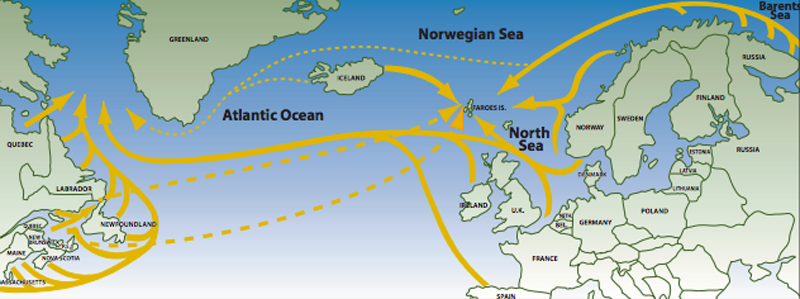
When it comes to North Atlantic salmon, all roads lead to western Greenland and the Faroe Islands, with adults from rivers in Europe, the northeastern United States and the Canadian Maritimes converging there each year to feed before making the journey home to spawn. Migration routes of the North Atlantic salmon (Atlantic Salmon Federation).
Social Issues
Rallying the masses to protect, preserve, or restore something they cannot see is never easy. Unlike eagles, bison, sea turtles, and many other threatened species, unless you fish, you’ll never see an Atlantic salmon in the wild. They don’t soar overhead, saunter across the plains, or crawl up on the beech to deposit their eggs, they just swim unnoticed in the darkness of our rivers and streams.
Historically, when it came to fish conservation, it was sportsmen, or more specifically, recreational anglers, who led the charge. Unfortunately, the emphasis was usually “wild,” and not necessarily “native.” Unfortunately, in many cases, anglers see more value in nonnative species than they do what belongs there. And in most cases, conservation involved gamefish, species we could fish for – and herein lies the problem.
Having been closed to recreational angling for two decades, many of today’s anglers have never fished for native Atlantic salmon, at least in the United States, and those who have are getting old. As we lose Atlantic salmon advocates to Father Time, we are not replacing them due to a lack of familiarity, and by default, interest. Like the fish themselves and the fabled Salmon Clubs, Atlantic salmon advocates are in danger of going away.
Failed Efforts
Like Pacific salmon and steelhead restoration programs that bomb our rivers with fish raised in traditional hatcheries, Atlantic salmon restoration efforts are failing, and miserably. To expect highly domesticated fish to survive in waters that have been heavily compromised by dams, invasive fish, warming water, and other factors, is naïve at best, and at worst, a recipe for disaster.
When something’s not working, you change direction. As far as Atlantic salmon go, this is where we now find ourselves: it’s not working and we must change or risk losing the species. But change comes painfully slowly when often understaffed and underfunded government agencies and non-profits are involved, and in this case, far too slowly for the last remaining Atlantic salmon in America.
Pushing the Envelope
Non-typical stocking programs like those employed by DSF at their Peter Grey Hatchery are showing some promise. Raised in untreated water from their natal river, and tough love rather than coddling, these fish are better suited to life in the wild. Early reports indicate that DSF may be on to something, as smolt returns associated with the fish they raise are higher than those originating in the federal hatchery. But this is just a Band-Aid, and a way to keep fish in the rivers while we address the big picture.
And to be clear, no one wants to get out of the hatchery business more than DSF, and in fact, they never wanted to be in the hatchery business in the first place. But they cannot get out of it until the population is stabilized, or the federal government pulls the plug on Downeast Maine’s Atlantic salmon as they did Massachusetts, New Hampshire, and Vermont.
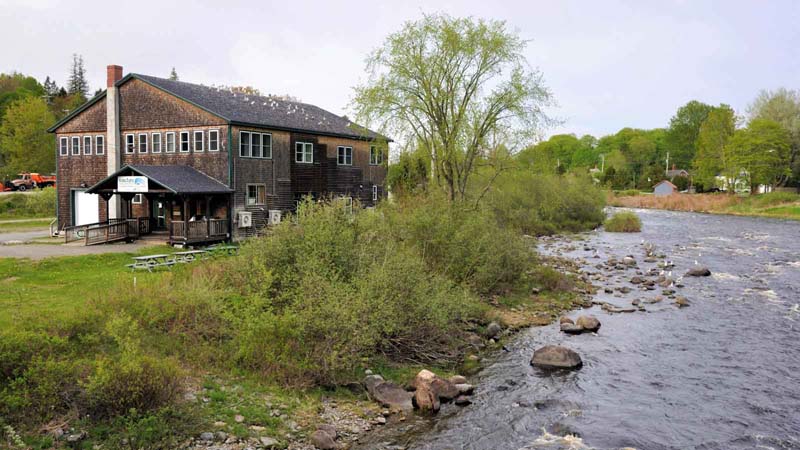
June, 2017 – DSF’s Peter Gray Hatchery on the banks of the East Machias River | Bob Mallard photo
Who’s Stepping Up?
DSF, Atlantic Salmon Federation (ASF), and many other groups and individuals worked long and hard to force the critically important federal ESA listing for Atlantic salmon. Had this not happened, it’s very likely there would be no Atlantic salmon left in the United States. These groups continue to remove dams – a critically important part of the puzzle, install fish-passage, improve in-stream habitat, protect important riparian areas, plant eggs, stock fish, post signs, etc.
Under the federal listing for Atlantic salmon, responsibility for managing the species is shared between USFWS and Maine Department of Marine Resources (MDMR.) The former spends millions of dollars a year on hatchery maintenance, stocking, and other restoration efforts, and the latter assists them and serves as the local boots on the ground government agency.
When the Maine Chapter of Native Fish Coalition (NFC) approached MDMR to discuss the lack of a maximum length limit on brown trout, which closely resemble Atlantic salmon, in coastal waters, they responded immediately and instituted a 25-inch limit to protect critically important adult Atlantic salmon from accidental harvest due to misidentification.
Working with DSF, ASF, and MDMR, Maine NFC designed an informational sign for Downeast Maine’s Atlantic salmon rivers and streams. What few signs we could find were in poor shape and attached to trees, posts, and kiosks that lay hidden in the brush. It looked as though we had given up on salmon, the last thing we want people to believe. The signs state that the fish are there, they are endangered, and you cannot legally fish for them, along with a request: Please help protect these rare native fish. The idea was to remind people of what we were doing and why.
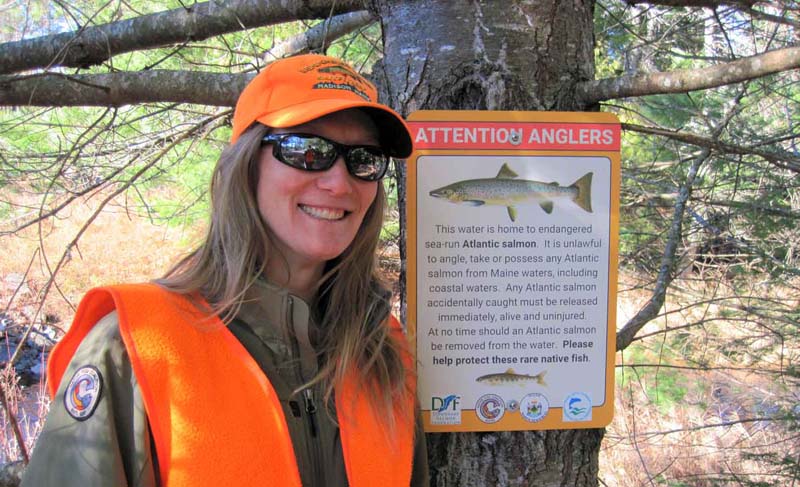
Native Fish Coalition National Vice Chair and Maine Chair Emily Bastian on the upper Narraguagus River | Bob Mallard photo
Who’s Not?
Unfortunately, while responsible for the well-being of most fish found in Maine’s inland waters, Maine Department of Inland Fisheries and Wildlife (MDIFW) has taken a hands-off position in regard to Atlantic salmon. When asked if they wanted to be part of NFC’s Atlantic salmon sign, MDIFW declined, stating, “We do not manage that species.” The fact that the signs were being posted on water they manage and police warranted their involvement.
While MDIFW has made some concessions, such as a 25-inch maximum length limit on landlocked salmon and brown trout in rivers and streams to help protect critically important adult Atlantic salmon from misidentification and accidental harvest, they have not extended the same protections to the lakes where large adult Atlantic salmon may winter over.
MDMR has a 14-inch minimum length limit on landlocked salmon and brown trout in coastal waters to help protect juvenile Atlantic salmon from accidental harvest due to misidentification. While MDIFW has a 14-inch minimum length limit on landlocked salmon in rivers and streams, the limit on brown trout, a species easily confused with Atlantic salmon and present in some Atlantic salmon watersheds, is just 6 inches, putting juvenile Atlantic salmon at risk.
In late 2019, MDIFW proposed stocking nonnative brown trout in Patrick Lake, the headwaters of the East Machias River. MDIFW noted “Patrick Lake lies within the Gulf of Maine DPS for Atlantic salmon,” and that an earlier stocking program, 2001-2004, was terminated due to “public concern for stocking brown trout within an Atlantic salmon drainage.” After opposition from NFC, DSF, and others, the proposal was withdrawn in May 2020, with MDIFW citing concerns about low returns in regard to stocked brown trout, not the well-being of endangered native Atlantic salmon.
MDIFW recently undertook an effort to redo their species management plans. Maine NFC and others participated in the Arctic charr working group, and Maine TU and others in the brook trout working group. There were groups for lake trout, landlocked salmon – most of which are nonnative, lake whitefish, baitfish, and nonnative bass as well. There was no working group, nor management plan, for Atlantic salmon.
During a recent vote of the Maine Outdoor Heritage Fund board in regard to funding to help remove a fish-blocking dam on the Dennys River, a designated Atlantic salmon river, the lone dissenting vote came from MDIFW, who when asked said it was “not a priority.” While they ultimately changed their vote, it confirmed what many were concerned about – MDIFW is not fully committed to Atlantic salmon recovery.

Photo courtesy of the Atlantic Salmon Federation.
Why Does this Matter?
Atlantic salmon spend the first three to four years of their lives in freshwater. They go from egg to alevin to fry to parr, before dropping to the ocean as 6-8” fish known as smolts. Atlantic salmon return to their natal rivers and streams to spawn after one to three years at sea, and sometimes winter over in freshwater lakes before going back to the ocean. The process is repeated until the fish dies.
While in freshwater, Atlantic salmon are susceptible to misidentification and incidental mortality at the hands of anglers. Most Atlantic salmon waters are open to the use of bait, which according to most studies comes with a 30% incidental mortality rate (IMR). There is no way to fish these waters without encountering juvenile, and even adult, Atlantic salmon. And most of the lakes where adult Atlantic salmon might overwinter are open to ice fishing which has an even higher IMR.
Juvenile Atlantic salmon are also subject to competition for food and space, and predation, from nonnative fish. Per MDIFW, “Sea-run Atlantic salmon occur in many of Maine’s inland waters where landlocked Atlantic salmon and brown trout may also exist.” The Kennebec River and its primary Atlantic salmon spawning tributary, the Sandy River, are being actively stocked with nonnative browns. And nonnative landlocked salmon are found throughout the Penobscot system, as well as some Downeast rivers.
While MDMR is technically responsible for the species, for the first three to four years of their life, Maine’s Atlantic salmon live in water managed and policed by MDIFW. Without MDIFW fully committed to their protection and recovery, Atlantic salmon restoration will be an uphill battle at best. Again, the situation regarding Atlantic salmon is dire, and we need everyone on the same page, especially MDIFW.
Salmon Matter… All of Them
As part of a “citizen scientist” brook trout survey project sponsored by Maine Audubon, Maine TU, and MDIFW, volunteers fish coastal streams and rivers, some of which are home to Atlantic salmon, and record their catch. While artificial lures and flies are recommended, volunteers are allowed to use, and in some cases, encouraged to use, bait, something I challenged but to no avail.
During an outing to Downeast Maine, a volunteer posted a picture of a bleeding salmon on the grass that had been caught by one of the project coordinators. While said to be a landlocked salmon, upon closer inspection the fish was lacking a fin-clip, indicating it was likely an Atlantic salmon, and possibly a rare wild one. To risk killing any rare Atlantic salmon just to prove relatively common brook trout are there does not make sense.
“However, if you are unsuccessful catching trout with artificial lures, before you leave your survey site you may want to try using worms to assess whether brook trout are present.” — Maine TU Website
Endangered or Not?
The most glaring inconsistency in regard to Atlantic salmon management in Maine is that while the species is listed as Endangered at the federal level, and the only Atlantic salmon left in the United States are in Maine, they are not listed as Endangered at the state level. This includes both the Maine Endangered Species Act (MESA,) and the Maine Marine Endangered Species Act (ESA.) They are not classified as “Threatened” either. And amazingly, they are not even listed as a Species of Special Concern.
At the federally mandated Wildlife Action Plan level, Maine’s Atlantic salmon are listed as a Tier 1 Species of Greatest Conservation Need, two steps below Endangered, one step below Threatened, and the same status granted to Arctic charr, a Species of Special Concern. Per MDIFW, Arctic charr are not even rare, as NFC was asked to remove the word “rare” from a co-branded informational sign pertaining to such.
“If the number of moose or white-tailed deer in Maine numbered less than 100, it’s very likely that the regulatory agencies of Maine would list them as endangered. Why has the state failed to do the same for Atlantic salmon?” — Topher Browne, author of “Atlantic Salmon Magic”
To try to get everyone on the same page as Atlantic salmon enter their last lap, NFC, Maine NFC, DSF, ASF, Maine Council ASF, Union Salmon Association, Upstream Watch, Kennebec Reborn, Friends of Merrymeeting Bay, Elliotsville Foundation, former MDIFW Commissioner Ray “Bucky” Owen, former MDIFW Deputy Commissioner Matthew Scott, former MASC Biologist Edward Baum, retired MDIFW Fisheries Biologist Joan Garner Trial, PhD; retired Maine Department of Environmental Protection Biologist Mark Whiting, PhD; as well as authors Catherine Schmitt and Topher Browne, are petitioning MDIFW to list Atlantic salmon as Endangered at the state level.
“Wild Atlantic salmon once ranged across New England. Today, these fish persist in only a handful of Maine rivers and not enough is being done to bring them back from the edge of extinction. A state listing would help tackle a number of significant threats to the species that the federal listing has been unable to address for the last 20 years.” — John Burrows, Executive Director of U.S. Operations, ASF
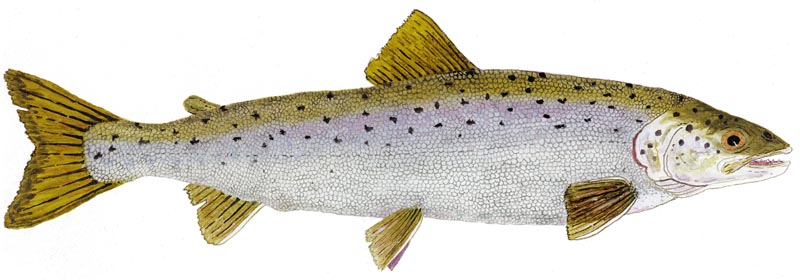
Atlantic salmon caught in Quebec – commissioned art by Thom Glace – avid angler, conservationist, and world-renown watercolorist/illustrator. Website . . .
Failure to Unite
Unfortunately, as is often the case when it comes to fish, some conservation groups in Maine, including Maine Audubon, Maine Rivers, and Natural Resources Council of Maine, refused to sign on, opting instead to take a wait-and-see, or a less effective lone wolf approach, submitting letters of support after the fact at best. Do these groups not believe Atlantic salmon are endangered? Do they feel that the Maine ESA process doesn’t work? Or are they just afraid to get involved in something that is certain to be contentious?
The Maine TU State Council was unable to gain consensus two weeks after being asked to sign on. They said they needed a “few months” to “understand all the ramifications of this and what are the positive and negative aspects of the listing since the species is already listed federally.”
Maine TU went on to say they “may be in a position to send a letter in support of your recommendation,” not sign on as a partner which would make a much stronger statement. Again, why? If Maine TU can’t support critically imperiled Atlantic salmon, what can they support? When approached to support the effort to list Atlantic salmon as Endangered at the state level, Jeff Reardon, National TU’s Maine-based representative, and Maine Brook Trout Project Director, deferred to Maine TU and would not take a position. Conversely, ASF and NFC, both of whom have a national and state presence, took positions at the national as well as state level.
The situation is best summed up by Emily Bastian, National Vice Chair and Maine Chair for NFC. If you accept the science behind Atlantic salmon, which is virtually unchallenged, and care about the species, I don’t see how anyone could feel otherwise. Hopefully, MDIFW and the Maine legislature will feel the same. If they don’t, countless dollars and immeasurable time will be wasted as agencies work against each other, and Maine’s most iconic fish, the “King of Fish,” slips into the abyss.
“Atlantic salmon are classified as Endangered at the federal level and are at risk of going away. The only Atlantic salmon left in the country are in Maine, yet the state has not listed them as Endangered at the state level. Listing Atlantic salmon at the state level would help protect this important natural resource, align the State of Maine with federal efforts to protect the species, and help conserve one of Maine’s and the nation’s greatest and most emblematic fish.” — Emily Bastian, National Vice Chair, NFC
As Atlantic salmon swim their last lap, we must ask ourselves: Could my favorite fish be next? What would the powers that be do if it were brook trout that were in trouble? Yellowstone cutthroat? Steelhead? Bonefish? Tarpon? Stripers? Would they band together and do everything possible to save the species? Or would they let turf, politics, personalities, paranoia, etc., get in the way of sound scientific decisions? Let’s hope you don’t have to find out.


